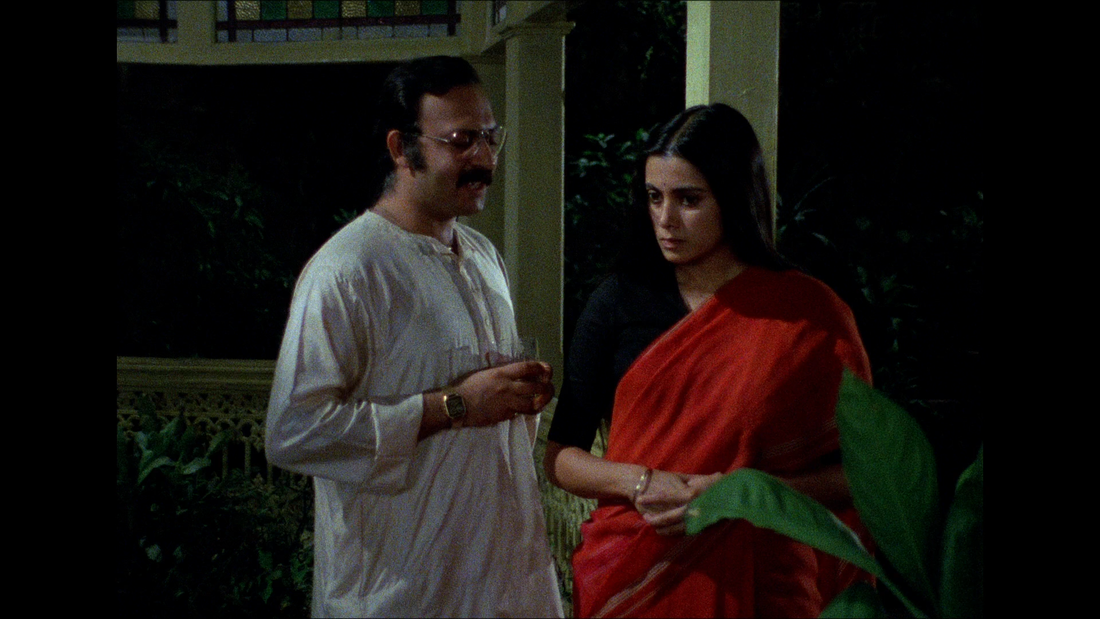|
A polemic affront to intellectual hubris devoid of direct action, Govind Nihalani's Party is an astute examination of the relationship between action and observation, detailing the fragmentation and disruption of socio-political ideology when placed in contention with one's own economic prosperity. Taking place over the course of one evening at a dinner party, where the ruling class of India has come to celebrate a literary award bestowed to one of India's most cherished writers, Party is a meticulously layered ensemble piece that slowly unravels and contextualizes its characters with grace and conviction, detailing the corrosive effect wealth can have on social prosperity while ruminating on the meaning and purpose of art itself. Over the course of the evening performative pleasantries erode and competition and judgement seep out, revealing how even among individuals of the same status ego often supplants altruism - the pursuit of elevated social status and the potential for more social capital, and by proxy material wealth accrual, breeds competition which distracts and distorts larger societal progress. Through the film's intricate exploration of the ruling class, Party demonstrates the corrosive toll which this privilege and prosperity can have when not properly checked from within. Hubris manifests through those whose affirmation of worth is tied directly to their own social status. Their means of cognitive exit are through guilt or dissonance, when stood up against the larger societal struggle for equality and justice. In this fashion, Class itself can often create a divide between the individual and the collective, the art transcends such divisions while the artist themselves often falls victim to the allure of hubris and a heightened sense of worth. While some look at an unjust world and demand change, others merely accept their conditions, profiting off the inequalities of the polity to enrich themselves. For Govind Nihalani, this is a passive & toxic act of political activism, nothing more than a performative romanticization of injustice for those who don't directly commit their time and labor to the struggle. For the cultural elite who expound virtue without action, is their intent genuine, or merely rooted in personal elevation across social capital and economic gain? Managing to be intellectually rigorous while also emotionally poignant in the way it skillfully extrapolates the ethos of its assorted characters, Govind Nihalani's Party is a pointed, persuasive attempt to elucidate the concept of art in a way in which it is tied directly to social obligation, inciting the idea that words without action are intrinsically egotistic in a market society
0 Comments
Leave a Reply. |
AuthorLove of all things cinema brought me here. Archives
June 2023
|

 RSS Feed
RSS Feed
